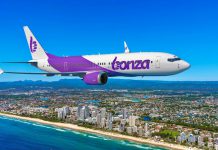Serious concerns have been raised about the efficacy of some vaccines to the new South African strain of COVID-19.
In a report “Commercial Aircraft Recovery: Hello darkness my old friend, I’ve come to talk with you again” New York-based analyst Bernstein warns that just as some parts of the world (US, EU) open up as the spread of the Wuhan strain is stopped, new strains could lead to reinfection and also render some vaccines that are most suitable for emerging markets as relatively ineffective.”
Bernstein says that while the number of COVID-19 vaccines and the high-volume manufacturing capability is good news stories the new variants of COVID-19, with different mutations, have raised serious concerns.
The South African variant is the biggest challenge it warns with a significant drop in efficacy.
READ: Tiem to end baseless MH370 conspiracy theories
It warns that “results from Novavax and Johnson & Johnson (vaccines) indicate materially lower efficacy of their current vaccines on that variant.
“Novavax had 89 percent efficacy in the UK, but only 60 percent in South Africa. J&J’s vaccine also showed lower efficacy in South Africa.”
These vaccines are more suitable for emerging markets because of their ease of handling compared to the Pfizer and Moderna vaccines which must be kept at -70C and -20C respectively.
The Novavax trial is covered in Bernstein medical’s report; “Novavax vaccine suggests lower efficacy against South African variant – yikes.”
In the Novavax trial, more than 90 percent of the South African sample was attributed to the South African strain of the virus says Bernstein.
It adds that another problem is that prior COVID infection did not appear to prevent reinfection by the South African virus.
Bernstein says that while it should be possible to modify vaccines to address new COVID-19 strains, the timing is unclear.
“We do not yet know how this will play out. Even at lower efficacy rates, these vaccines should still help prevent severe disease. But, based on Novavax and J&J results, there is now a real possibility of a third wave in the fall of this year as well as an extended period of COVID-19 pressure in emerging markets.”
Bernstein says a third wave would likely take us back to our more pessimistic forecast from last June for recovery, which was for domestic air traffic to reach 2019 levels in mid-2023 and international air traffic to 2019 levels by the end of 2024 – one year behind its current traffic forecast.
Bernstein adds that international risk is greatest, given that another wave would be worst for emerging markets and keep travel restrictions high.
It notes that cases in Dubai – a major travel hub- have soared with the South African variant and the British government has banned all travel between Dubai and the UK.
“Situations like this are likely to keep travel restrictions high.”
It adds that “there is now a heightened risk that this pandemic could extend longer than we (and most others) have thought, due to the impact of mutations to the COVID virus.”
























